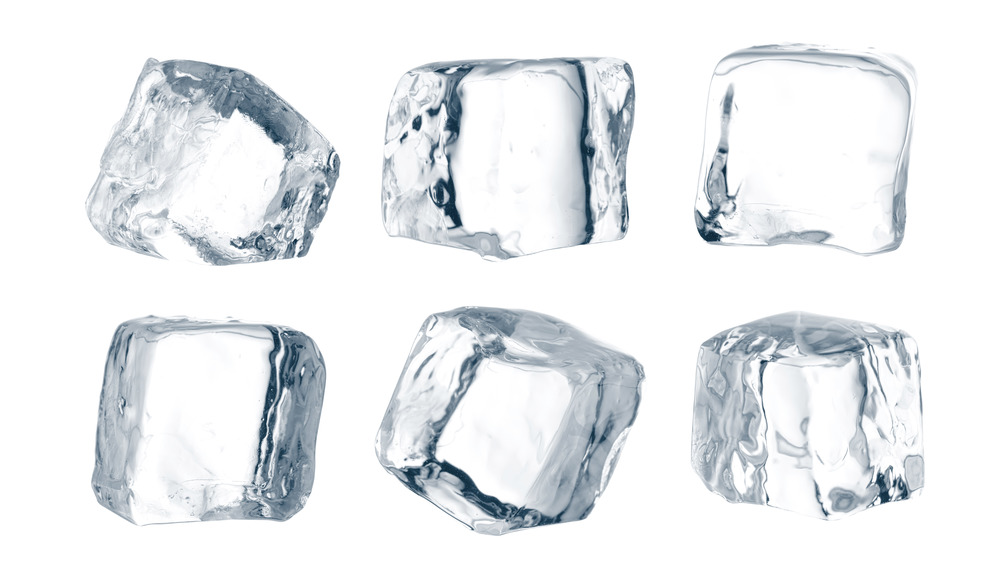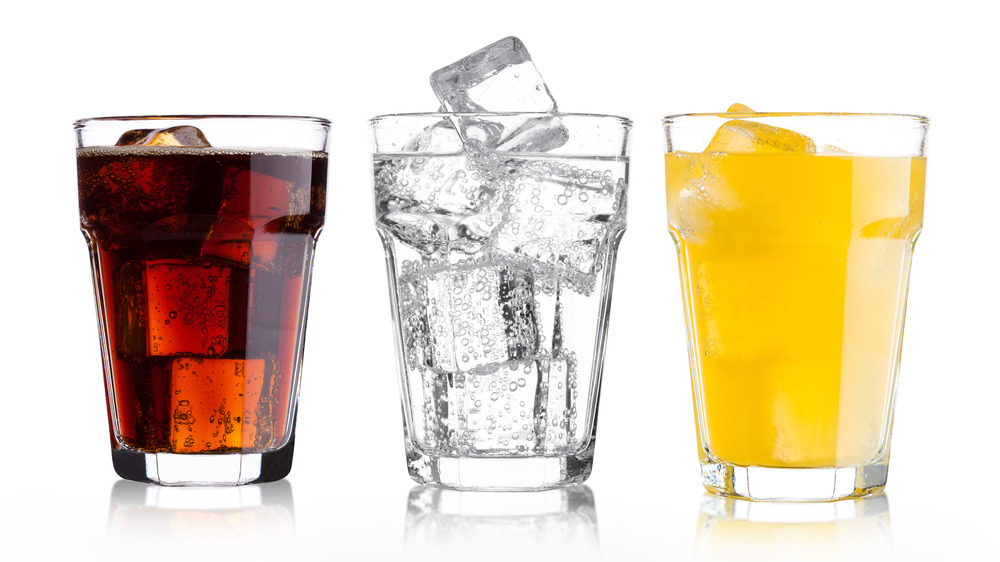This Is What It Really Means When You Crave Ice
You might crave something salty, sweet, spicy, or savory, but a craving for ice is a bit more unusual. Do you often run to the freezer to grab some ice cubes to munch on? Maybe you make iced drinks so you can chew on the ice cubes. There are a few different medical reasons you might be craving ice. There is a medical term for craving ice — it's called pagophagia, a form of pica also known as "ice pica."
Pica is a health condition that makes you crave things that have no nutritional value, like sand, paper, paint chips, chalk, or ice, for example. Pica could indicate an iron deficiency with or without anemia, obsessive-compulsive disorder, malnutrition, or another mental health disorder. Craving ice once in a while is fine, but you could have pagophagia if you crave and eat ice every day for a month (via Healthline and the Journal of Clinical & Diagnostic Research).
There is a clear link between iron deficiency anemia and pagophagia, as outlined in a 2014 study. Researchers included 81 participants with iron deficiency anemia and found that 16 percent of them had pagophagia. They stopped craving ice after researchers gave them an iron supplement.
How to stop eating ice
The first step is to have your doctor order a blood test to see if you have a calcium or iron deficiency. If you have an iron deficiency, your doctor will likely prescribe iron supplements and ask you to eat more foods rich in iron. If it's a calcium deficiency, you'll get a calcium supplement and should eat more foods rich in calcium. It's easy to go overboard on iron, so don't take an iron supplement without talking to your doctor first (via Medical News Today).
One case study shows how a woman developed ice cravings due to stress and anxiety about her son's upcoming academic tests. She started out eating up to 12 ice cubes a day, which increased to up to 30 when she decided to see a psychiatrist. Counseling and a prescription of Prozac helped her stop.
Cognitive-behavioral therapy (CBT) is a common and effective therapy for obsessive-compulsive disorder, stress, anxiety, and other mental health conditions. You'll need to see a mental health professional if one of these might be the cause of your ice cravings. Therapy, and possibly medication, can help reduce and eventually stop your ice cravings.


